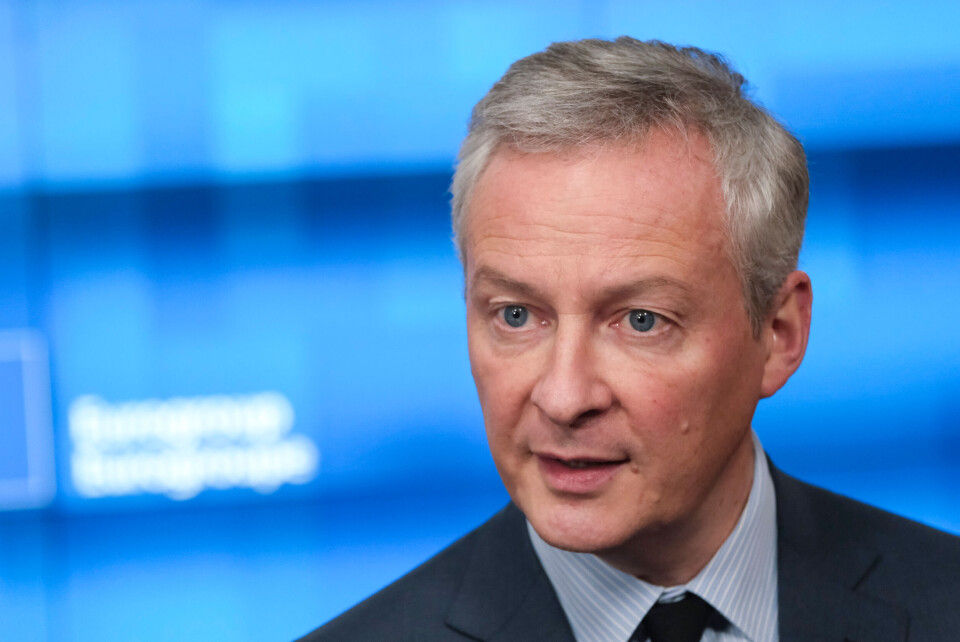-
Warnings issued over connecting to public WiFi networks in France
Lack of encryption and risk of connecting to ‘fake networks’ leave users at risk of hacking attempts
-
France impacted by EU approval for €3 tax on small parcels from outside the union
Tax could coincide with separate French fees for parcels says Finance Ministry
-
Winegrowers outraged by €0.01 bottle of wine in French supermarket
Lidl claims labelling error but local farmers’ union says it threatens local production
Yachts, ski chalets, villas: France freezes €850m in Russian assets
The finance minister confirmed that the state is now ‘working to ensure that it will not just be a matter of freezing assets, but also of seizing them’

France has announced it has frozen almost €850million in Russian assets after a task force identified key figures from a list issued by Brussels as a result of the war in Ukraine.
Finance Minister Bruno Le Maire confirmed the figure during an appearance on debate programme Grand Jury RTL-Le Figaro-LCI yesterday (March 20).
He said: “We have frozen €150 million worth of private accounts and credit lines in France, and in French institutions, as well as €539 million worth of real estate on French territory, corresponding to around 30 properties or flats, and we have frozen two yachts worth €150 million.”
In addition, France has also frozen €22billion of Russian central bank assets, he said.
Freezing assets means that the owners can no longer use them, resell them, or monetise them, said Mr Le Maire.
The plan is now to seize and not only freeze these assets
However, the assets have not been “seized” by the state, in the sense that France does not own the assets and cannot use or resell them. “For there to be a seizure, there must be a [proven] criminal offence,” the minister said.
The measure is one of the most visible actions taken by France in relation to economic and political figures considered to be close to Russian President Vladimir Putin. Until now, France has not revealed numbers for the financial measures taken against Russian nationals.
It comes after France announced the creation of a task force made up of major financial intelligence services, including the Treasury and Customs, to quickly identify the bank accounts, luxury ships, and properties on the Côte d'Azur, or chalets in the Alps, of key Russian nationals.
Another of the task force’s aims included informing relevant financial institutions and managers, including banks, insurance firms, financial managers, notaires, lawyers, and estate agents.
It is up to them to check if their clients’ assets have been frozen, to identify any accounts concerned, and to take action such as stopping a property sale if necessary. They also need to alert the task force and Finance Ministry (known in France as Bercy after its Paris location).
The force is also charged with adding more names to the sanction black list as necessary. More than a dozen names have already been added to the list, Bercy said.
Almost 700 names of Russian and Belorussian individuals and entities now appear on the list compiled by Brussels.
Mr Le Maire said: “We are working to ensure that it will not just be a matter of freezing assets, but also of seizing them. We are still working on it.”
However, he said: “Sanctions [such as this] hurt Russia, hurt the Russian state, and hurt [Russian President] Vladimir Putin.”
It comes after the 86-metre superyacht l’Amore-Vero, which belongs to a company controlled by Russian owner of petroleum giant Rosneft Igor Sechin, was seized in France.
Read more:Russian oligarch’s €120m yacht seized in French port
The yacht, which has a heliport and a pool, was able to be seized because the owners attempted to lift anchor and leave earlier than planned via the La Ciotat channel (Bouches-du-Rhône), in contravention of the asset freezing rules.
Related articles
Pressure mounts on French brands to close stores in Russia
We have space, time: Why we are hosting Ukrainians at our French homes
Time magazine to use French artist’s 45-metre Ukraine print on cover
Russian TV protest journalist refuses Macron’s offer of protection
























